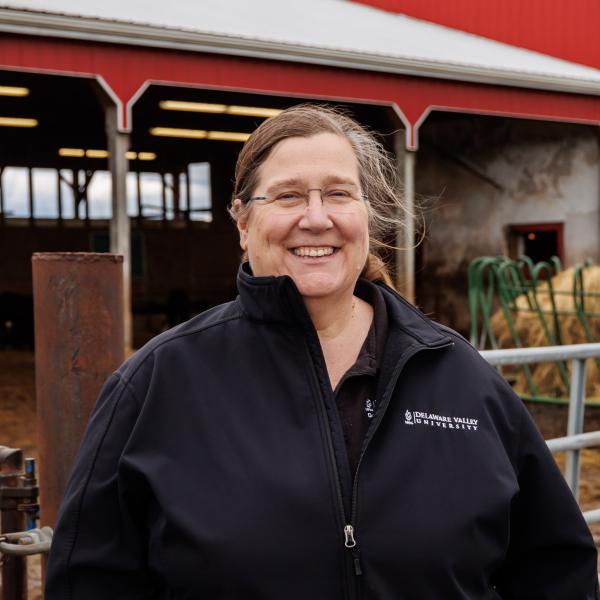
Instructor, Co-Chair of the Animal and Dairy Science Department
What brought you to DelVal?
I graduated from here in 1989. When I was looking at schools back then, I toured campus and met one of the animal science faculty and saw all the hands-on stuff they did here, even then, and I just fell in love with the place and the size of the campus and how beautiful it is.
After I graduated from here, I got a job with Merck doing animal health research. I was there for 18 years until they closed the facility. Then I was looking for something new and found a job as a farm manager at Rutgers and I did some teaching there and really enjoyed it. I was there for 12 years and then saw this job posted and knew that this was where I was supposed to be.
What are the characteristics of a successful student at DelVal?
Success here is more than just acing exams. I've noticed some students get caught up in checking boxes, focusing solely on their coursework or path to vet school, for example. But the ones who truly thrive are those who seize every opportunity. They dive into the hands-on experiences, embrace E360 requirements, pursue internships, join clubs, and stay open-minded. You might come in with a clear goal, like becoming a vet, but DelVal has a way of opening your eyes to unexpected paths that could be life changing.
Can you highlight any specific student success stories that stand out?
There are so many, but I’ll tell you about Hunter. He was in my poultry science class, and I encouraged him to get his poultry technician license, which we offer here in conjunction with the Pa. Department of Ag. He would grumble about having to get up early, get to the barn, and do the training, but he did it and he got through it. Then last fall, I get a call from him and he said, “Remember how I grumbled about that training?” I said, yes, and he says, “Well I just got a job because I had that license!” Moments like that, when I see a student's hard work pay off, make me incredibly proud.
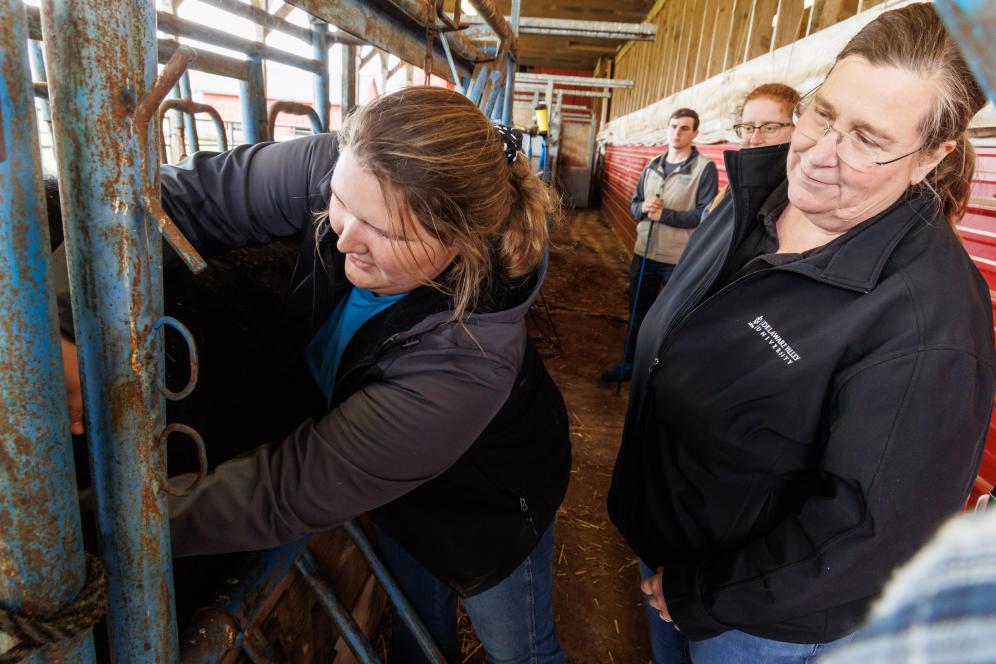

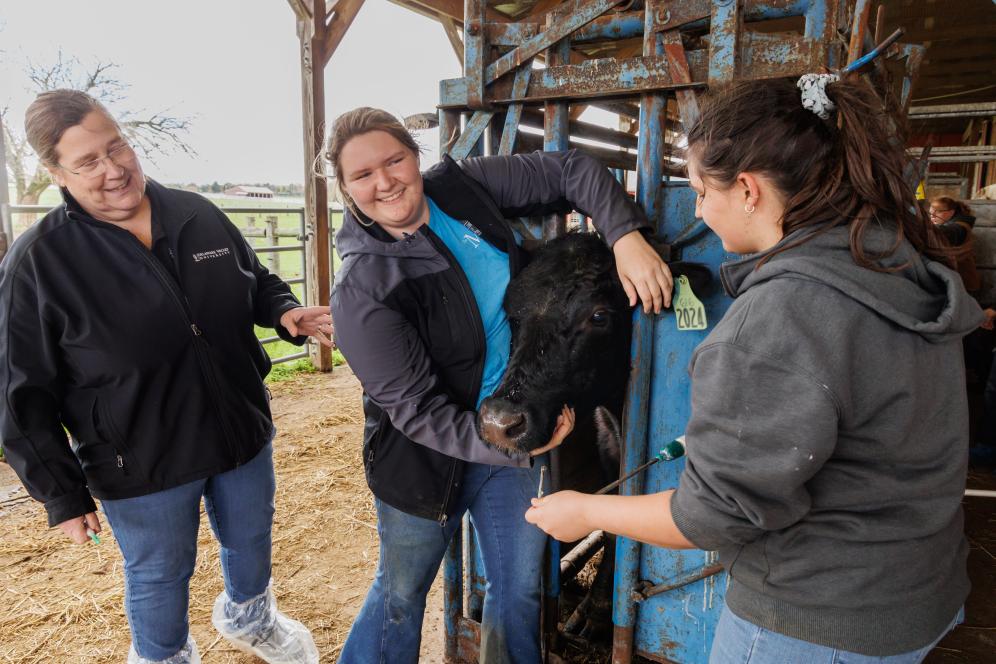
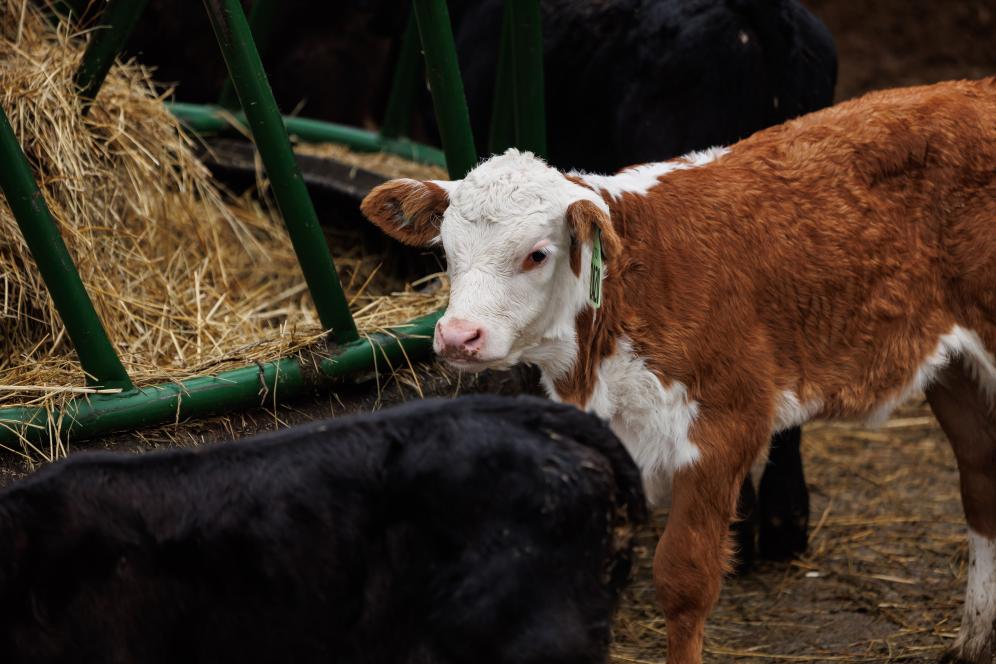
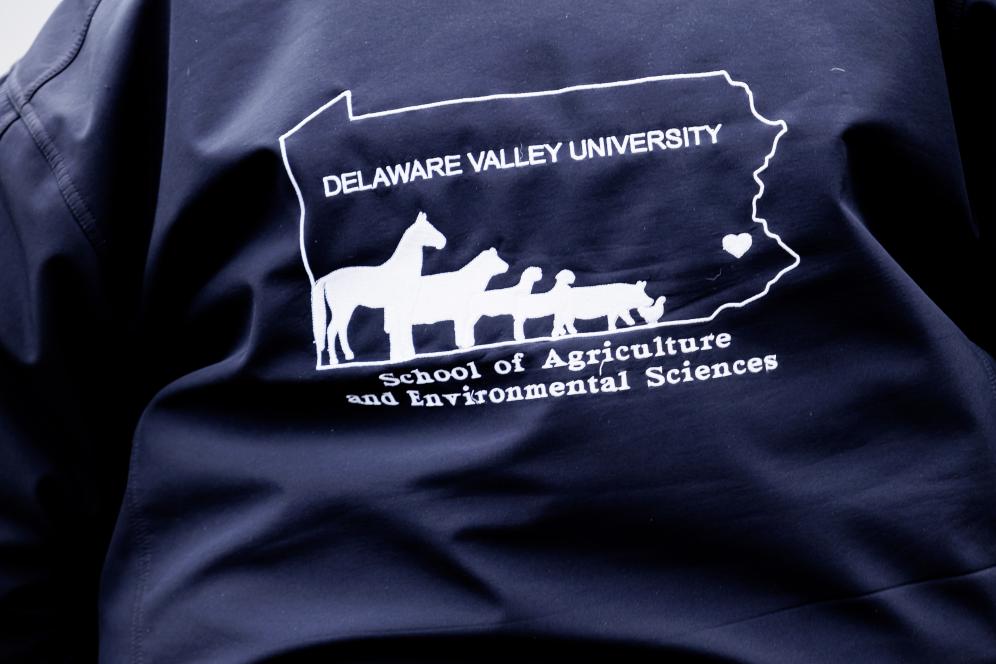
What about your job brings you the most satisfaction?
I love to watch students find their way. It's a process and every story is different but they each have similarities. It's funny, most spring semesters I have some students sitting in my office going, “What am I going to do with my life?” And I always assure them that they are going to figure it out, so to kind of watch them find their way is really rewarding to me, whatever it happens to be. I have a former dairy science student, who now works in the horticultural industry instead of in animal science and she's absolutely killing it right now. She's like one of the only women in the country that can drive and operate one of those big tree spade trucks. So to kind of watch her go from being somebody who was struggling a little bit and didn’t know what to do after graduation to a rock star at a job she though we just be for a brief time is really cool. So cool.
How do you harness the pillar of experiential learning in your everyday teachings?
Everything we do is experiential learning so we actually spend a lot of time preparing them for the hands-on learning here by starting with safety procedures and the basics and then gradually building from there. I would say a majority of our students now are not coming from farms; maybe they’ve had the opportunity to do some large animal work, whether it is through FFA or 4-H, but they’re not living it every day. So we have to start with the basics, starting with safety, because these animals are big and they can be dangerous if you don’t know what you’re doing. We’ll start by learning how to put a halter on, how to run an animal in the shoot and where you want them to stand. We’ll introduce them to the barns and what they can expect to see and do. Then in future years they will learn how to milk cows, perform a physical on a cow and learn the terminologies and processes. We’re raising a group of boiler birds on campus so they need to be responsible for feeding and making sure they have water and that their pens are dry. Then you go to a dairy business analysis class and we are diving into the operations of the farm – do our cows have enough space to eat, how much milk are we getting, how efficient are we working? Another thing we had this spring is a livestock judging contest on campus that we hosted where 4-H and FFA kids from all over the state come here to evaluate animals. My livestock evaluation students worked closely with that event and used parts of it as their lab practical for the semester.
Any specific activities or initiatives that you prioritize when mentoring DelVal students?
I preach networking and getting involved in something on campus outside of class. There are so many good clubs and programs here that can open your mind to things you never would have thought of and it presents experiences you never would have found.
If you were to be a YouTube influencer or TikTok influencer, what would the subject of your content be?
It would probably just be kind of clearing up a lot of the misconceptions about agriculture and animal science. I see too many people that think we're just in it for the money and the animals don't matter to us, but that couldn’t be further from the truth. It does us absolutely no good to mistreat our animals and if you know our students and our professors, the people that are in this industry, you know that they are people that love animals.
About Joanne Powell
Joanne Powell is a member of the faculty in Delaware Valley University’s Department of Animal Science. Powell’s areas of interest include cattle (dairy and beef), dairy production and value-added marketing, direct marketing of meat and poultry products, poultry, meat goats, and agritourism and social media outreach on farms. Powell brings real-world expertise to DelVal students with her experience working for Merck and her role at Rutgers as a farm manager.
Office Location: Feldman 112